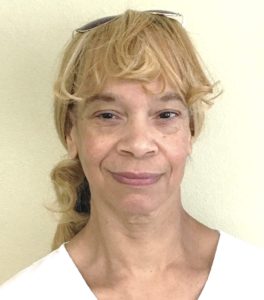How to Manage Seasonal Affective Disorder While Aging in Place
Many elderly people are susceptible to “the winter blues,” more formally known as seasonal affective disorder (SAD). Fortunately, there are ways to counteract the effects of this condition, and maintain high spirits during the dreary winter months. Here, the home care providers at Avila Home Care explain how to manage the symptoms of SAD.
Seasonal affective disorder (SAD) is an emotional condition characterized by prolonged periods of sadness, moodiness, change in eating or sleeping habits or anxiety during specific periods of the year. While SAD can occur at any time, it mainly occurs during the winter months, due to lack of sunlight and limited outdoor exposure. Women and the elderly are particularly susceptible to SAD, but there are ways to counteract the effects of the disorder.
Use a Light Box or Sun Lamp
Many researchers believe that SAD is impacted by the level of sunlight a person experiences on a daily basis. As such, light boxes, also known as sun lamps, have been developed to mimic natural sunlight. Sitting next to a light box for 30-45 minutes daily can help to mitigate the effects of SAD–when choosing a light box, ensure it has a filter to block harmful UV rays from damaging the skin or eyes.
Get Tested for a Vitamin D Deficiency
Vitamin D plays a critical role in the body, and is particularly important for the elderly, as it helps promote bone density and health, and may prevent cancer or diabetes development. The symptoms of Vitamin D deficiency include muscle and bone pain, excessive fatigue and depressed mood. If you are experiencing the symptoms of SAD, an underlying vitamin D deficiency may be the root cause–have your doctor or medical care professional test you for a deficiency. Vitamin D supplements can be found in pill form, and natural sources of vitamin D include salmon and other fatty fish, egg yolks, mushrooms, cheese, yogurt, milk and fortified breads.
Exercise Regularly
Regular exercise has been proven to boost endorphin levels, leading to elevated mood, increased energy levels and improved sleep, all of which can help combat the symptoms of SAD. Exercise does not need to be intense to provide benefits–even a gentle or moderate exercise like walking, yoga or swimming can lead to higher endorphin levels. Elderly individuals should aim for 150 minutes of moderate exercise a week, as well as two sessions of strength training to promote bone and heart health, balance and flexibility.
Create a Social Support System
The symptoms of SAD can be exacerbated by isolation and loneliness, and so it is critical to maintain a circle of friends and loved ones to rely on throughout the year. There are many ways to increase social interaction: play a board game or card game, enjoy potluck meals or morning coffee with family and friends, take continuing education classes at a local community college or simply talk on the phone with loved ones. Although it may be an effort to do so, maintaining regular connection with those dear to you can help banish feelings of sadness or anxiety brought on by SAD.
An experienced caregiver can also play a role in providing a social support system for elderly people. More than professional home care providers, the companions at Avila Home Care provide compassionate and dedicated support for their elderly patients, fostering positive relationships and even friendships. To learn more about how our caregivers can help, contact us today!
Senior-Targeted Scams to Watch Out For
No one likes to think about their elderly loved ones being targeted by scammers, but it is a reality that must be taken seriously. Here, the aging in place specialists at Avila Home Care provide information about some of the most prevalent senior-targeted scams that the elderly and their loved ones should watch out for.…
Laverne Branch is Avila’s Caregiver of the Month for May, 2021!
Avila Home Care is proud to have Laverne Branch as a member of our exemplary Caregiving team! Laverne has been named May Caregiver of the Month because she has been a faithful and committed Caregiver since she came to work with Avila in the summer of 2017. She has worked with many clients over the…
A Message from Avila Home Care Founder, Danny O'Brien
Yesterday marked 9 months since I started my new business Avila Home Care. That first day, we served two clients with three caregivers. It was the beginning of what has been a wonderful adventure so far. Today, we have over 70 dedicated caregivers providing outstanding care to the amazing families we have the privilege of…


